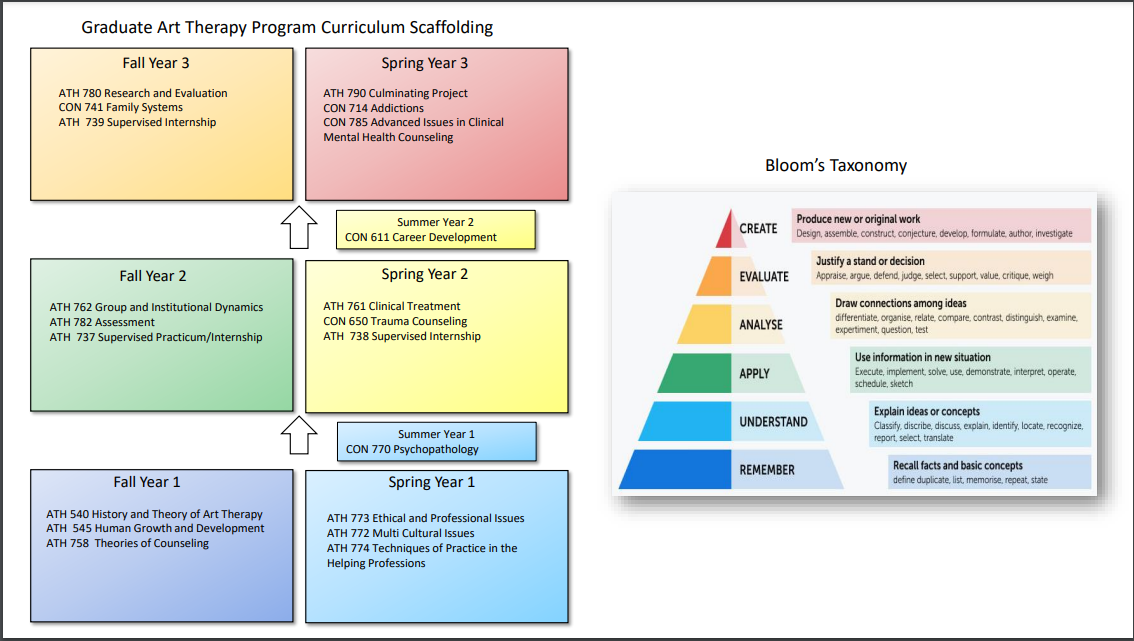At Mount Mary University, we strive to empower you to become a leader in the art therapy profession and the larger mental health field. We provide the necessary tools for you to advocate for yourself and your clients, and to communicate with a wide range of mental health professionals.
Compassion in action
The Master of Science in Art Therapy prepares you to become a professional art therapist. You'll gain strong clinical skills through hands-on learning experiences. A dynamic classroom environment presents sophisticated theoretical models of learning and encourages you to find your voice, articulate your visions for practice and express yourself. You'll learn how to use the arts in therapy and collaborate with a diverse community of artists, clinicians and learners.
Learn from leading minds in the field
Our expert faculty provides firsthand knowledge and expertise on topics such as individual and group art therapy research and practice, social action and the arts, mind-body-spirit interactions, the role of art therapy in the treatment of trauma and the interconnections of art therapy and neuroscience.
Degree requirements & completion time
The 60-credit Master of Science in Art Therapy program is designed for students who intend to practice art therapy and eventually become registered (ATR) and board certified (ATR-BC) with the Art Therapy Credentials Board. Graduates are prepared to become eligible for state licensure. Individual states vary regarding particular required content areas.
*As of Fall 2016 the Master of Science in Art Therapy program will follow a 3 year minimum course sequence.
Download the curriculum sheet for the 3 year program.
Curriculum requirements
The following components are required for successful completion of the program:
- A 700-1,000 hour supervised training experience
- 42 credits of required art therapy courses
- 18 credits of counseling courses
- A culminating project
The Graduate Art Therapy Program curriculum is intentionally scaffolded to provide a developmental progression as follows:
Year 1: Theoretical knowledge, basic skills, and context for practice
Year 2: Clinical knowledge, intermediate skills, and application to practice
Year 3: Integrated knowledge, advanced skills, and continued application to practice
Final Semester: Creative integration via the Culminating Project

See complete degree requirements and a listing of courses in the Graduate Bulletin (PDF).
Practicum and Internship Experiences
For your required supervised practicum and internship experiences, you will work in a variety of clinical, educational and community settings where art therapists and counselors work. These settings include, but are not limited to, psychiatric and residential treatment facilities, medical art therapy clinics, alternative schools, domestic violence shelters, skilled nursing care centers, alcohol/substance abuse treatment centers, community arts programs, correctional facilities and veteran’s hospitals.
Transfer Credits
A maximum of 9 credits or 30 percent of total program credits, whichever is greater, may be transferred from other regionally accredited institutions with the approval of the program director. All transfer credits must be at a grade B or better, and must be documented with official transcripts. Credit earned prior to admission will be evaluated during the admission process only.